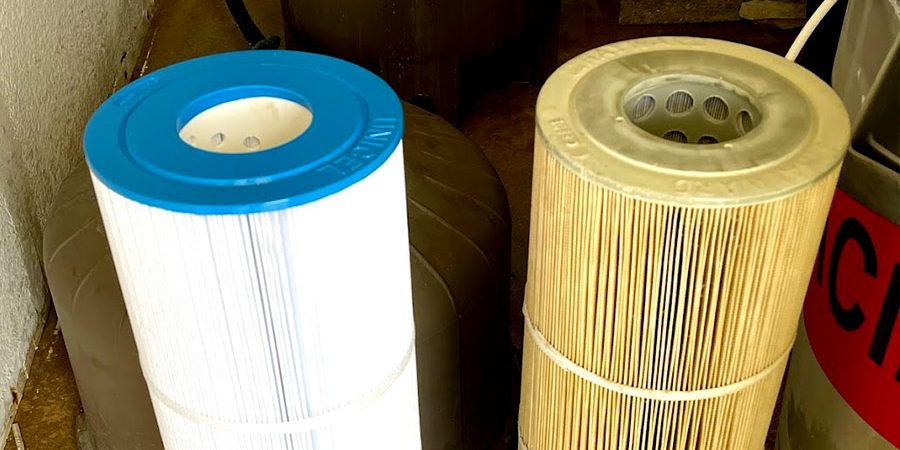It is important to maintain and clean the pool filter of your pool regularly to ensure that it is functioning properly and to help prevent any potential leaks. Cleaning the pool filter should be done at least once a month, or more frequently if you use the pool often, we recommend cleaning it every two weeks during the summer and every 3-4 weeks during the colder months. When cleaning the pool filter, you should look out for any signs of wear, damage, or deterioration and make sure all parts are in good working order. Additionally, you should check for any blockages or clogs that could cause a slowdown in filtration and lead to water build-up over time.
To clean a pool filter properly, first shut off the pump’s power source before removing the filter housing for inspection. Once removed, inspect for any physical damage or broken parts that may need repair or replacement. Next scrub gently with a soft brush to remove debris from the outside of the filter housing as well as from inside components such as O-rings, gaskets, and lids. To further cleanse these components, use hot water mixed with a mild soap solution and then rinse with cool water afterward. Finally, replace all components in the housing unit; ensuring everything is securely fastened before turning on the power source once again.
Especially if you have an inground pool, it is advisable to have your pool filters professionally checked and cleaned at least twice every year; most likely once during the springtime (right before using your pool) and once during autumn. This will help keep your filters running efficiently while also keeping them free from debris buildup which can lead to costly leaks down the line. Taking an extra step in preventive maintenance not only saves you time but money too!
It is important to note that most pool filters are designed with an element that gradually wears out over time. This process can cause the performance of the filter to decline regardless of how well it’s cleaned and maintained. The gradual decline in performance will eventually lead to reduced water flow and decreased filtration quality.
Pool filters should generally be replaced every year, depending on the frequency of use and size of the filter. If a pool is used heavily or not regularly maintained, the filter may need to be replaced more frequently. Signs that a pool filter needs replacement include reduced water flow, noisy operation, and poor filtration results. Additionally, if the filter is showing signs of physical damage such as cracking or broken components, it should also be replaced immediately.
Furthermore, when replacing a pool filter you should always choose one that is compatible with your existing setup since having mismatched parts could lead to additional problems down the line. Different types of filters require different maintenance practices so consulting a knowledgeable technician regarding the types of filters available and which best suits your particular needs will allow you to make an informed decision when it comes time for a replacement.


